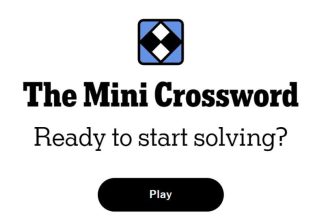A health crisis can be a great reveal, forcing you to look more closely at yourself and your life. This, in turn, can reveal what you have and haven’t done yet and what to do with your life going forward. It can also reveal a lot about the people around you and what they are really like. Indeed, when you are in throes of a health crisis, each person could throw himself or herself in one of the following five directions:
1. Attempt to take advantage of you.
Yep, unfortunately, some people will view your misfortune as opportunities to boost their own fortunes. They’ll try to exploit your current weaker position—when you’re less able to detect and fend off their ploys—to get you to do what they want. This can include pressuring you into relinquishing resources, giving them opportunities, entering into a commitment with them or doing something else that you may regret in the future.
Don’t expect compassion or empathy to get in the way of these self-centered users’ Thanos-esque endgame. They may use every possible leverage tactic including snaking themselves into a position where you seemingly depend on them for help. From such a position, they can threaten to withhold assistance or leave if you don’t do their bidding. This can be paired with trying to isolate you from others to further your dependence. This close position allows them to pester, criticize, gaslight or even bully you even more until you eventually surrender. Sounds great, huh?
It’s important to identify and cut these toxic people out of your life as soon as possible. Or at least set clear boundaries that they can’t cross. Otherwise, being around them can be akin to wearing a meat suit or dress amongst wolves. Lean on your support network for help identifying and dealing with such users since you won’t always be that strong, robust, clear-headed, I’m-too-sexy-for-my-shirt person that you are when healthy. And don’t make any major unnecessary decisions in the midst of a health crisis. No matter how street smart you may think you are, you can get run over by these roadsters.
2. Run away and avoid you.
These folks may or may not be deliberately trying to hurt you, but their actions—or rather lack of action—can end up causing pain. They may be oh-so-present when times are good. But once the virtual bleep hits virtual fan for you, watch them blow away like dust in the wind. They may reduce their contact or even completely bail and go AWOL, not even offering a periodic check-in, when such an act takes only a few minutes and few fingers on a keypad to do so.
Several reasons may be driving this disappearing act. One possibility is that they do not really care about you or at least don’t have you very high on their priority lists with you falling somewhere below the Kardashians and that barista in the local coffee shop. Another possibility is that they find your health problem too confronting for them, reminding them of their own vulnerability or mortality. A third possibility is that they do not know what to say or do, so their default is to, drum roll please, do nothing.
When this happens, consider questioning them about their behavior and seeing if any clarification can bring them back into the fold. If they still remain distant, then you’ll know not to depend on them going forward.
3. Be two-faced and gossip about you.
Ah, gossip can serve as gold for some people, giving them something that they can offer others besides things like, you know, having an interesting personality. So, while apparently assisting you, some folks at the same time can be collecting personal and even confidential information about you that they can then relay to others, sort of like what many social media companies do.
It can be difficult to trust these folks since they are essentially selling what you are revealing to them. Consider confronting these gossips about why they betrayed your trust and insisting that they don’t it again. Maybe they’ll express clear remorse, make amends and agree to keep everything you share confidential unless otherwise specified. If they fail to do this, though, you may want to cut off their access to your gold since they don’t deserve your trust.
4. Offer limited or conditional help.
Don’t expect everyone to be all-in to help you. Some could be half-in, quarter-in, one-twentieth-in or less, which can be fine, as long as their actions match your expectations and their supposed closeness to you. Even small amounts of help here and there can add up and be meaningful.
It can be disappointing, though, when you are getting a lot less than you expect from certain people, like nuggets of assistance when you thought you’d get the whole Happy Meal. Challenges can also arise when their assistance comes with clear strings attached and they treat supporting you more like a transaction where they expect get something immediately in return besides, oh, the satisfaction of helping you. The extreme is when they hold you hostage, threatening to withhold help unless you meet certain conditions.
How you deal with these folks depends on how much you expected from them, how much you need their assistance, what alternatives you may have and how much you are willing to tolerate. If it’s reasonable to expect much more from them, having a frank conversation can determine if certain fears, insecurities or misunderstandings are holding them back—such as concerns that you won’t appreciate their help—and whether these concerns can be alleviated. If they don’t change their stance, though, then they’ve revealed where they stand and what you should expect going forward.
5. Be truly helpful and supportive.
Here we’ve saved the best for last. A health crisis will reveal not only the worst in some people but also the best in others. It could end up super-strengthening existing friendships or partnerships and creating new ones because when the chips were down, some people step up, perhaps even above and beyond your expectations. They’ll behave selflessly and show that they are guided by true kindness, compassion and interest in your well-being. These are the gems, the exemplars of humanity, the people whom you should cherish forever.
And some of these people may come from unexpected directions including those whom you hardly knew or didn’t even know before your health crisis. During strange times, sometimes strangers can provide some of the biggest help.
The good news about all five directions is that it’s always better to know who people really are as soon as possible. That way you don’t waste any more of your most precious resource—your time—with the wrong people and instead can focus more on the gems in your life. This may in fact be the healthiest thing to come out of a health crisis.
Read the full article here





